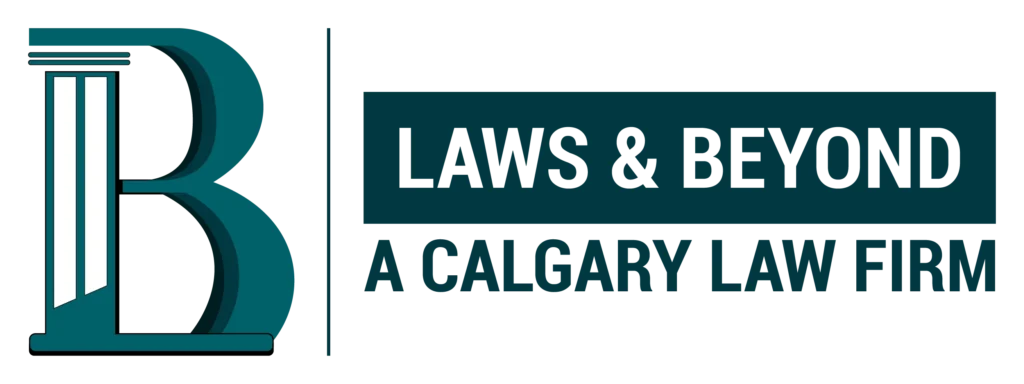The Prompt Payment and Construction Lien Act (previously known as Builders’ Lien Act) is a crucial piece of legislation that governs the construction industry in the province. Understanding the ins and outs of this act is essential for contractors and subcontractors operating in Alberta. From securing payments to resolving disputes, the Builders’ Lien Act provides a comprehensive framework for protecting the rights and interests of all parties involved in construction projects. This in-depth guide will explore the key provisions of the act and provide valuable insights and practical advice for navigating its complexities. Whether you are a contractor, subcontractor, or industry professional, this guide is a must-read for anyone involved in the construction industry in Alberta.
What is the Prompt Payment and Construction Lien Act (previously known as Builders’ Lien Act)?
The Prompt Payment and Construction Lien Act, previously known as the Builders’ Lien Act, is a crucial piece of legislation in Alberta that aims to address payment delays and disputes in the construction industry. The act was introduced to ensure that all parties involved in a construction project are paid promptly and fairly, ultimately promoting financial stability and efficiency within the industry.
Under the Prompt Payment and Construction Lien Act, specific timelines are established for the payment process. This includes the submission of invoices, the approval or rejection of invoices, and the subsequent payment to contractors and subcontractors. By setting clear deadlines, the act provides a framework for timely payments, reducing the risk of delayed or non-payment for contractors and subcontractors.
Furthermore, the act also governs the process of filing and enforcing construction liens. A construction lien is a legal claim placed on a property to secure payment for labor or materials provided during a construction project. It safeguards the rights of contractors and subcontractors in the event of non-payment. The Prompt Payment and Construction Lien Act establishes the requirements and procedures for filing and enforcing construction liens, ensuring that those who have contributed to a project can seek proper remedy in the case of non-payment.
Overall, the Prompt Payment and Construction Lien Act plays a vital role in promoting fair and efficient payment practices in the construction industry. By providing a clear framework for payment timelines and establishing procedures for filing and enforcing construction liens, the act aims to protect the rights and interests of all parties involved in construction projects in Alberta.
What is a Construction Lien?
A construction lien is a legal claim placed on a property to secure payment for labor or materials provided during a construction project. It safeguards the rights of contractors and subcontractors in the event of non-payment. The act establishes the requirements and procedures for filing and enforcing construction liens, ensuring that those who have contributed to a project can seek proper remedy and protect their financial interests. Without this act in place, contractors and subcontractors would be at a higher risk of experiencing non-payment, which can have severe consequences for their businesses.
Who is covered under the Prompt Payment and Construction Lien Act?
The Prompt Payment and Construction Lien Act in Alberta provides protection and support to various parties involved in the construction industry. Understanding who is covered under this act is essential for contractors and subcontractors to ensure that their rights and interests are properly safeguarded.
The following parties are covered under the Prompt Payment and Construction Lien Act:
1. Contractors: Any individual or business that has entered into a contract with an owner to provide labor, materials, or services for a construction project is covered under the act. This includes general contractors who oversee the entire project, as well as specialized contractors who provide specific services or materials.
2. Subcontractors: Subcontractors are individuals or businesses who have entered into a contract with a contractor to provide labor, materials, or services for a specific portion of the construction project. Subcontractors play a crucial role in the construction industry, and the act ensures that their rights are protected.
3. Suppliers of materials: Suppliers of construction materials, such as lumber, concrete, plumbing fixtures, or electrical components, are also covered under the act. These suppliers play a vital role in providing the necessary resources for the construction project, and the act ensures that they receive fair and timely payment for their products.
4. Consultants and professionals: The act also covers professionals and consultants who provide services such as architecture, engineering, or project management for the construction project. These individuals or businesses contribute their expertise and play a crucial role in the successful completion of the project.
It is important to note that the Prompt Payment and Construction Lien Act applies to both public and private construction projects. Whether the project involves the government, private owners, or corporations, the act ensures fair payment practices and provides a clear framework for resolving payment disputes.
By including a wide range of parties involved in the construction industry, the Prompt Payment and Construction Lien Act aims to create a fair and level playing field for all stakeholders. It promotes transparency, contractual obligations, and timely payment, ultimately ensuring the sustainability and growth of the construction industry in Alberta. Contractors, subcontractors, suppliers, and professionals can rely on the act to protect their rights and financial interests, enabling them to carry out their work with confidence and certainty.
Understanding lien rights and obligations for contractors and subcontractors
Understanding lien rights and obligations is essential for contractors and subcontractors to protect their interests and ensure they receive timely and fair compensation.
1. What are lien rights?
Lien rights refer to the legal claim that contractors and subcontractors have on a property when they have provided labor, materials, or services for a construction project. It allows them to place a lien on the property as security for the payment they are owed. This lien serves as a visible notice to the property owner and other parties involved that the contractor or subcontractor has a financial interest in the property.
2. How to preserve lien rights?
To preserve lien rights, contractors and subcontractors must comply with certain requirements and deadlines. These may vary depending on the jurisdiction and the specific provisions outlined in the Prompt Payments Act of Alberta see a civil litigation lawyer. Some common steps to preserve lien rights include:
– Properly documenting the work done, including detailed invoices, receipts, and timesheets.
– Serving a preliminary notice, which informs the property owner of the contractor or subcontractor’s intention to assert a lien.
– Filing a Statement of Lien within prescribed timelines, which formally establishes the contractor or subcontractor’s claim on the property.
– Taking necessary legal action, such as registering the lien at the appropriate land registry office and initiating a lawsuit to enforce the lien if payment disputes arise.
3. Obligations and responsibilities of contractors and subcontractors
Contractors and subcontractors have certain obligations and responsibilities when it comes to lien rights. These include:
– Providing accurate and detailed invoices and documentation of the work performed.
– Maintaining proper records of all transactions, including contracts, change orders, and communications.
– Complying with all statutory deadlines and requirements for preserving and enforcing lien rights.
– Communicating with the property owner or general contractor in a professional and timely manner regarding any payment issues or disputes.
– Seeking legal advice or professional assistance if necessary to ensure compliance with lien laws and maximize their chances of receiving payment.
4. Importance of understanding lien laws
Understanding lien laws is vital for contractors and subcontractors as it empowers them to protect their financial interests and rights. By adhering to the necessary requirements and timelines for preserving and enforcing lien rights, contractors and subcontractors can ensure they have a legal recourse in case of non-payment or payment disputes. This understanding also facilitates better communication and collaboration among all parties involved, fostering an environment of transparency and fair practices within the construction industry.
In summary, contractors and subcontractors in Alberta must have a comprehensive understanding of lien rights and obligations. By following the necessary steps to preserve lien rights and fulfilling their contractual responsibilities, contractors and subcontractors can safeguard their payment and contribute to a thriving and sustainable construction industry.
Tips for contractors and subcontractors to navigate the Prompt Payment and Construction Lien Act effectively
The Prompt Payment and Construction Lien Act is a crucial piece of legislation that aims to ensure timely payment for contractors and subcontractors in the construction industry. Navigating this act effectively can help contractors and subcontractors protect their interests and avoid payment delays or disputes. Here are some tips to help contractors and subcontractors navigate the Prompt Payment and Construction Lien Act effectively:
1. Familiarize yourself with the act: Take the time to thoroughly understand the provisions and requirements outlined in the Prompt Payment and Construction Lien Act.This includes understanding the timelines for invoicing, payment certification, and dispute resolution processes. Being knowledgeable about the act will enable you to make informed decisions and take necessary actions to protect your rights.
2. Establish clear payment terms in contracts: When entering into a contract, clearly define the payment terms and conditions, including the due dates and methods of payment. Ensure that the contract complies with the requirements of the Prompt Payment and Construction Lien Act and clearly outlines the consequences for late payments or non-payment.
3. Keep accurate and detailed records: Maintain thorough documentation of all transactions, including contracts, invoices, change orders, and communications. Accurate records are essential for demonstrating your entitlement to payment and resolving disputes. Ensure that your records are organized, easily accessible, and up-to-date.
4. Promptly submit invoices: Submitting invoices in a timely manner is crucial to ensure prompt payment. Be proactive in providing accurate and detailed invoices that comply with the requirements of the Prompt Payment and Construction Lien Act.Include all necessary supporting documentation to facilitate the payment process.
5. Monitor payment timelines: Stay vigilant about monitoring the payment timelines outlined in the Prompt Payment and Construction Lien Act. Take note of the deadlines for payment certification, the release of holdback funds, and any potential disputes or claims. By closely monitoring these timelines, you can take appropriate actions if there are delays or issues with payment.
6. Seek legal advice if necessary: If you encounter payment issues or disputes, it is advisable to seek legal advice from a construction law professional. They can provide guidance on your rights and obligations under the Prompt Payment and Construction Lien Act, help you navigate the dispute resolution process, and take legal action if required.
7. Foster open communication: Maintain regular communication with the property owner, general contractor, and other project stakeholders. Promptly address any payment concerns or issues to ensure transparency and collaboration. Effective communication can help resolve disputes amicably and prevent potential conflicts.
In conclusion, contractors and subcontractors must navigate the Prompt Payment and Construction Lien Act effectively to protect their interests and ensure timely payment. By familiarizing themselves with the act, establishing clear payment terms, maintaining accurate records, and seeking legal advice when needed, contractors and subcontractors can navigate the complexities of the act and contribute to a fair and transparent construction industry.




